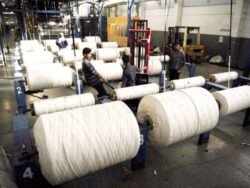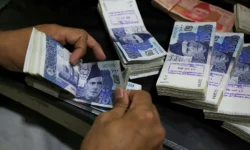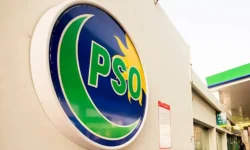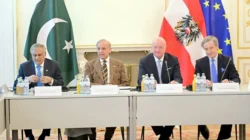PAKISTAN’S ECONOMIC RENAISSANCE: A GLOBAL AFFIRMATION OF PROSPERITY
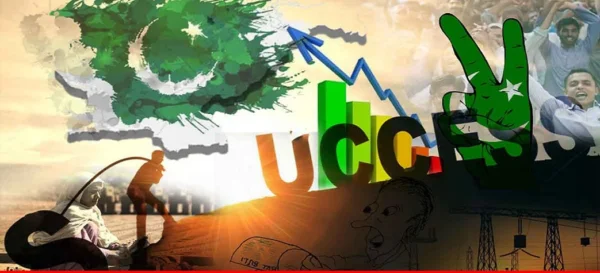
Taimoor Mustafa
[tta_listen_btn listen_text=”Listen” pause_text=”Pause” resume_text=”Resume” replay_text=”Replay”]Pakistan’s economic policies were initially oriented more toward short-term objectives, which had an impact on the country’s economy as a whole and contributed in the economic downfall in the past. However, recent reports on Pakistan’s economy showing that Pakistan will be 6th largest economy, indicate that the country has adopted certain long-term, constructive initiatives that have contributed to the country’s positive growth and shows positive future. The efforts made through the SIFC forum and the contributions of the Pakistan Army to the country’s economy made all these forward-looking measures possible.
In the realm of international economics, Pakistan is witnessing a paradigm shift a transformative phase marked by an unprecedented surge in global confidence. Key strategic collaborations and partnerships with major global players not only underscore Pakistan’s economic potential but also position the country as a thriving hub for investment and multifaceted cooperation. Let’s delve into the tangible indicators of this newfound trust, substantiated by an array of agreements that promise positive outcomes and pave the way for a robust economic future.
Firstly, EU and World Bank emerged crucial for Pakistan economic growth. EU’ decision to extend Pakistan’s Generalized System of Preferences (GSP) status until 2027 is a testament to the unwavering confidence in Pakistan’s economic trajectory. This trade privilege ensures preferential access to European markets, fostering increased trade and economic growth. World Bank emerges as a crucial ally, fully financing the $150 million Energy Efficiency and Conservation (EE&C) project. This initiative holds immense promise for enhancing energy efficiency, a key pillar of sustainable economic growth.
Beside EU Economic giants like China, USA and Russia has displayed genuine interests.
A stalwart ally in Pakistan’s economic journey, China has taken its commitment to new heights. A momentous $1.5 billion Memorandum of Understanding (MoU) has been inked, signaling a substantial increase in petroleum capacity a move set to elevate production from 250,000 to an impressive 1.6 million metric tons, alongside ramping up High-Speed Diesel (HSD) production from 0.6 million to 2 million metric tons. This monumental collaboration speaks volumes about the depth of economic engagement between two nations.
Beyond energy, China has extended its collaboration across diverse sectors. Signed a $6.7 billion ML-I Railway Project to revamp Peshawar-Karachi route, Agreements span commerce, communication, transport, connectivity, food security, media, space cooperation, urban development, capacity building, mineral, and industrial cooperation, climate change, and vaccine development. This multi-faceted approach emphasizes a holistic partnership designed to address every facet of economic development.
Likewise, USA’s Endorsement of Scientific Advancement has also shown interest with the signing of a five-year extension of the U.S. Pakistan Science and Technology Cooperation Agreement, United States has thrown its weight behind Pakistan’s scientific and technological pursuits. This agreement lays the foundation for collaborative advancements, fostering innovation and knowledge exchange.
Similarly, Russia, under President Putin’s leadership, has displayed a genuine interest in deepening bilateral ties. The focus on trade, investment, and energy signals a strategic shift, creating new opportunities for economic collaboration between the two nations.
Not only big economic giants like China USA Russia likewise Pakistan’s Strategic partnerships with Saudi Arabia and Egypt are reshaping the economic landscape. A groundbreaking Information Technology (IT) MoU between Pakistan and Saudi Arabia facilitates cross-border operations, workforce exchange, and joint ventures. Furthermore, Saudi Arabia’s interest, along with Egyptian billionaire Naguib Sawiris, in the Reko Diq venture underscores the attractiveness of Pakistan’s economic ventures.
Beyond these notable collaborations, Pakistan’s economy is diversifying across sectors. Agriculture, technology, and e-commerce are witnessing substantial growth. The National Agriculture Emergency Program, the Digital Pakistan Vision, and initiatives like Kamyab Jawan and Ehsaas Program are contributing to a more inclusive and dynamic economic landscape.
In nutshell, Pakistan’s Future Renaissance Towards Unprecedented Economic Heights in the wake of these monumental agreements and positive economic indicators Pakistan stands on the precipice of an unparalleled economic renaissance. The collaborative spirit with global partners, coupled with strategic national initiatives, positions Pakistan for sustained growth and prosperity in the years to come. As the tangible outcomes of these agreements materialize, Pakistan is set to not only weather global economic challenges but also emerge as a beacon of resilience, innovation, and economic vibrancy.

